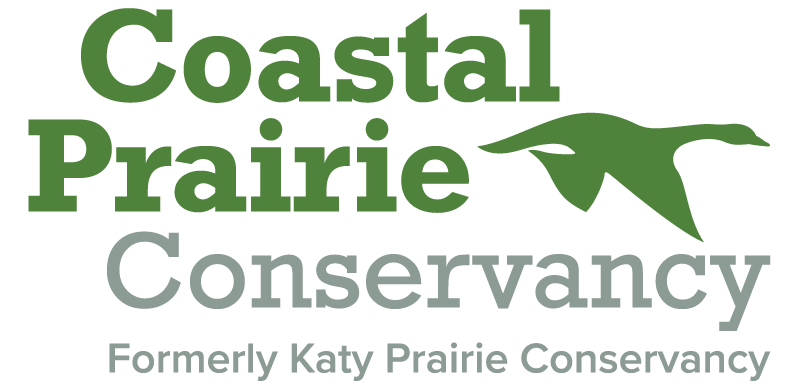Blog
We’re excited to let you in on all of the wonderful things happening on the coastal prairie.
Hi there! Check out the posts below for wildlife spotlights, prairie restoration updates, volunteer highlight stories, and much more! Have an idea for a new blog post? Email info@coastalprairieconservancy.org and let us know.
Rooted in Conservation: The Vital Role of Milkweed for Monarchs
Milkweed (Asclepias spp.) is a vital plant for pollinators and many other wildlife species. One of the most iconic species that depends on milkweed is the monarch butterfly. Milkweed is the only host plant where monarchs lay their eggs, and its leaves provide the essential food for their caterpillars. The availability of milkweed is crucial to the survival of these beautiful butterflies.
Safeguarding the Northern bobwhite quail: A Call to Landowners
The coastal prairie remnants protected by the Coastal Prairie Conservancy are part of a vast historic grassland. This ecoregion spans nearly 30,000 square miles along the Gulf of Mexico, stretching from west of the Mississippi Delta in Louisiana, through Texas, and down into Mexico, reaching the southern tip of the Laguna Madre estuary.
Common Coastal Prairie Plants
The coastal prairie remnants protected by the Coastal Prairie Conservancy are part of a vast historic grassland. This ecoregion spans nearly 30,000 square miles along the Gulf of Mexico, stretching from west of the Mississippi Delta in Louisiana, through Texas, and down into Mexico, reaching the southern tip of the Laguna Madre estuary.
Purple Martins: Texas' Beloved Migratory Swallows and How You Can Help Them
The Beloved Purple Martin: A Symbol of Spring and Conservation
As early spring approaches, Texas eagerly awaits the return of the Purple Martin (Progne subis). These remarkable birds captivate us with their annual migration, unique relationship with humans, and fascinating biology. Here’s what makes them so special and how you can help protect them…
Sandhill Cranes (Antigone canadensis)
On a blustery day in late November, I visited Indiangrass Preserve for the first time. I had the Ann Hamilton Trail to myself, enjoying the songbirds calling and briefly popping up above the grass. Gradually I became aware of a trilling, bugle-like sound gradually growing louder, and I looked up to see a flock of Sandhill Cranes wheeling in the sky.
Protecting Watersheds: Riparian Conservation
The coastal prairie remnants protected by the Coastal Prairie Conservancy are part of a vast historic grassland. This ecoregion spans nearly 30,000 square miles along the Gulf of Mexico, stretching from west of the Mississippi Delta in Louisiana, through Texas, and down into Mexico, reaching the southern tip of the Laguna Madre estuary.
Why You Need the Prairie and More of It
Historically, the Gulf Coast Prairie was 9 million acres of native grassland prairies and wetlands with forested areas around rivers, streams, and creek beds. Did you know that 11 of the 15 rivers that flow across Texas cross into the Coastal Prairie? That helps us understand just how valuable the filtering and water-absorbing properties of the prairie are!
I am eager to share some of the amazing capabilities of our native coastal tall grass prairies and how we can contribute to preserving and even re-introducing prairies in our landscapes.
Tiny Treasures: Discovering the Ruby-Throated Hummingbird
Although the coastal prairie in July can be hot, muggy and buggy, the birds are still busy going about their lives. Among the birds wading in prairie wetlands, you might see one walking slowly and gracefully on impossibly long, pink legs, with a striking body pattern of black above and white below. This is a Black-necked Stilt. You can find these elegant birds along the Gulf Coast year-round, but inland they are more common in the spring and summer months.
Black-Necked Stilt
Although the coastal prairie in July can be hot, muggy and buggy, the birds are still busy going about their lives. Among the birds wading in prairie wetlands, you might see one walking slowly and gracefully on impossibly long, pink legs, with a striking body pattern of black above and white below. This is a Black-necked Stilt. You can find these elegant birds along the Gulf Coast year-round, but inland they are more common in the spring and summer months.
2024 Cypress Creek Christmas Bird Count
The annual Christmas Bird Count (CBC) is a longstanding tradition that offers valuable insights into the diversity and health of bird species on the coastal prairie. Now in its 48th year, the Cypress Creek CBC includes the Katy Prairie Preserve and other surrounding properties that provide tens of thousands of acres of important bird habitat.











